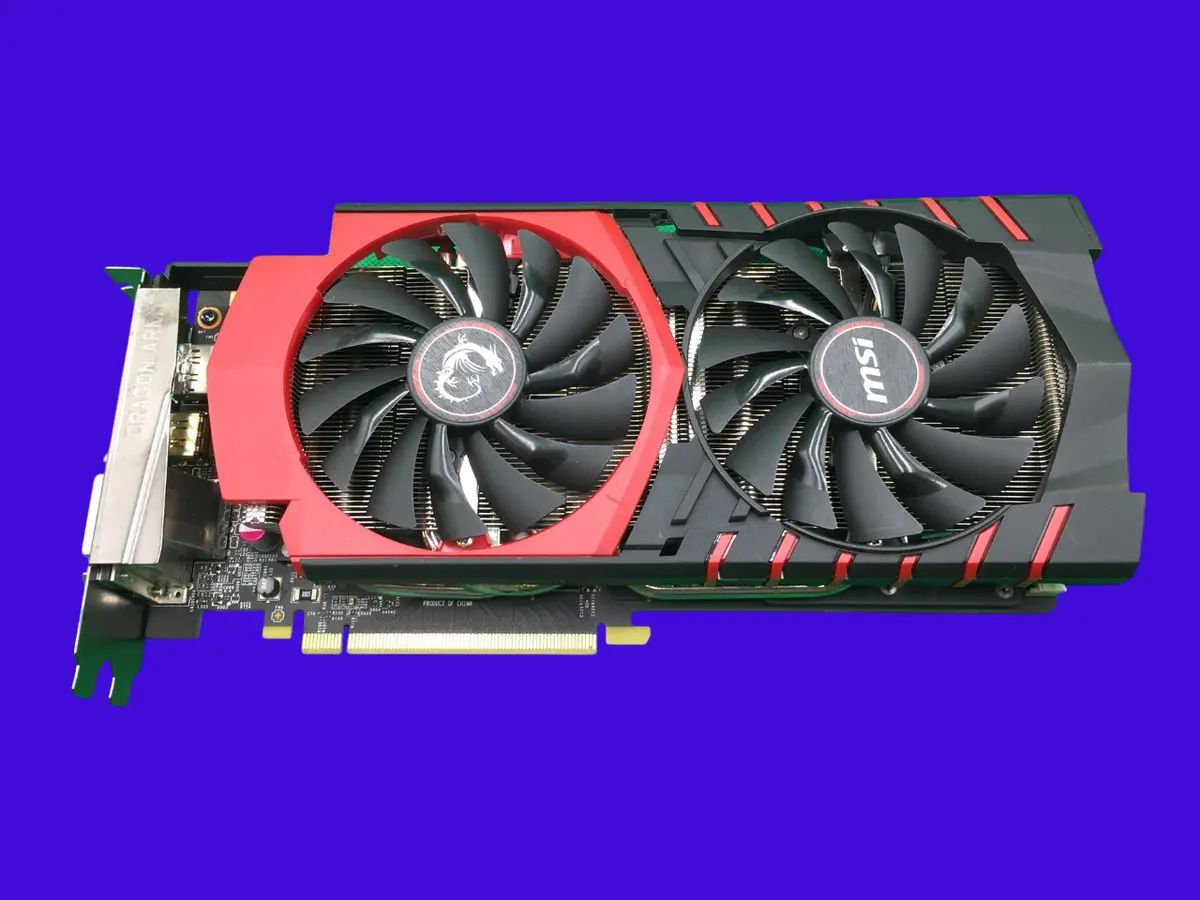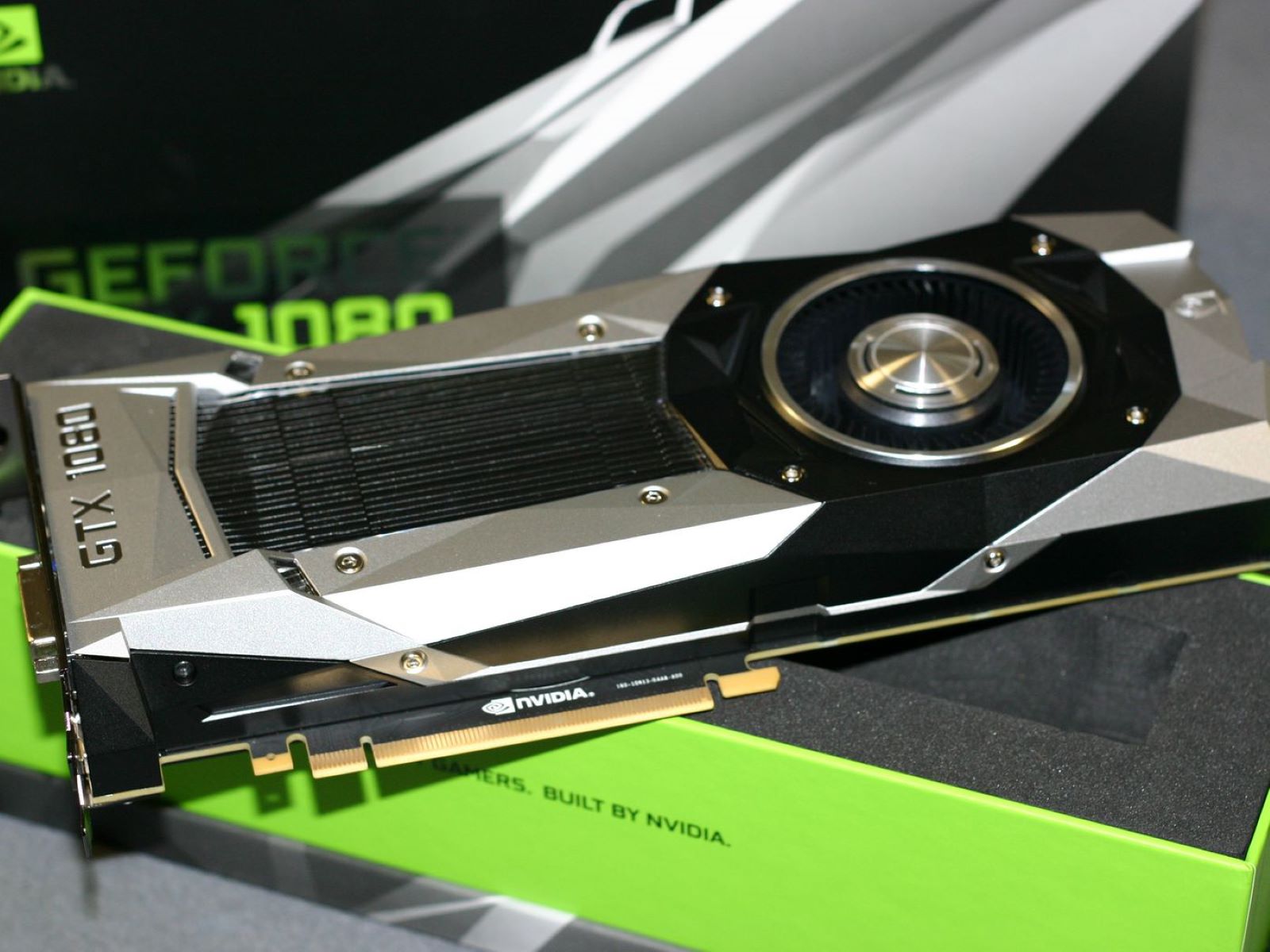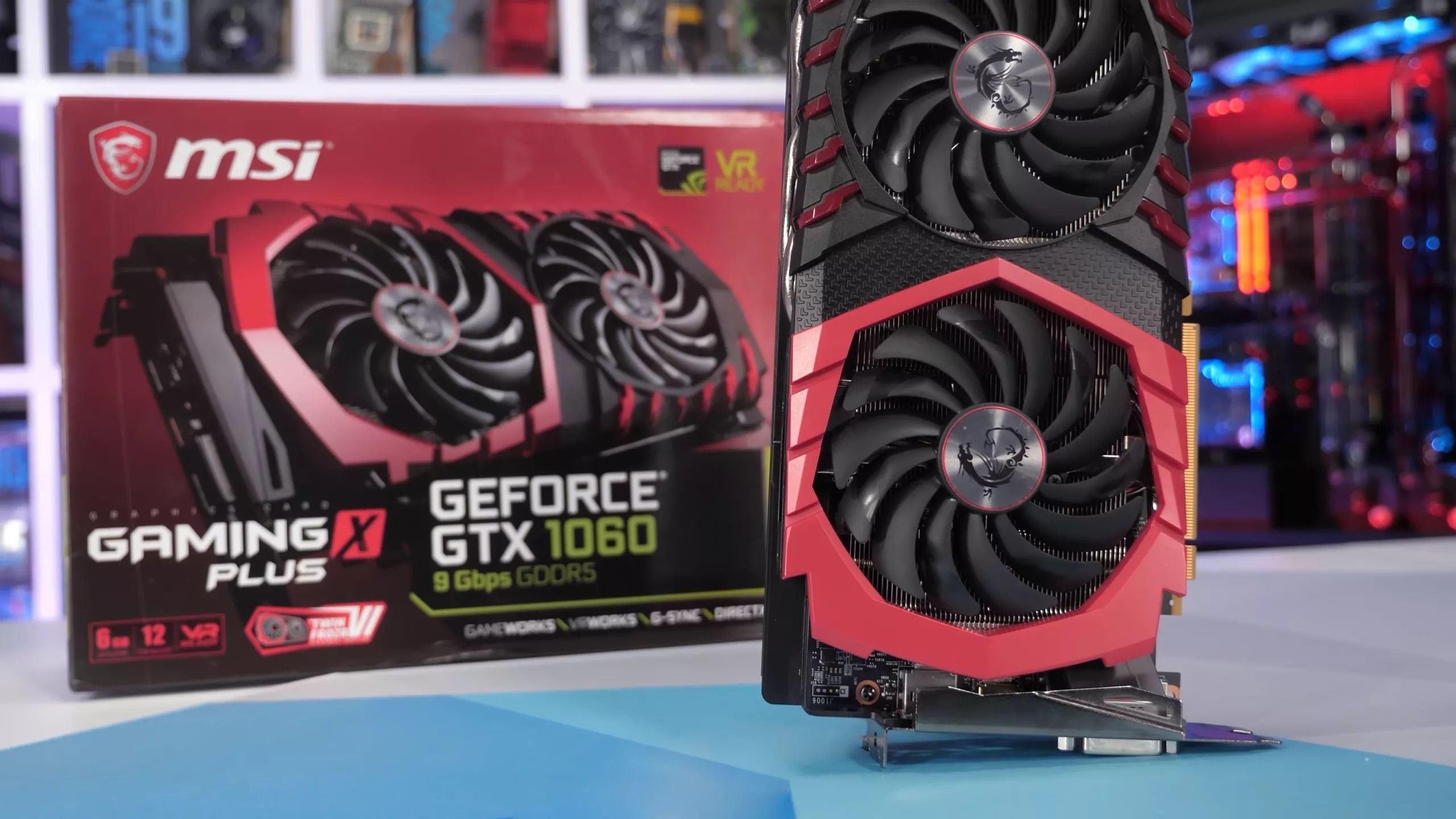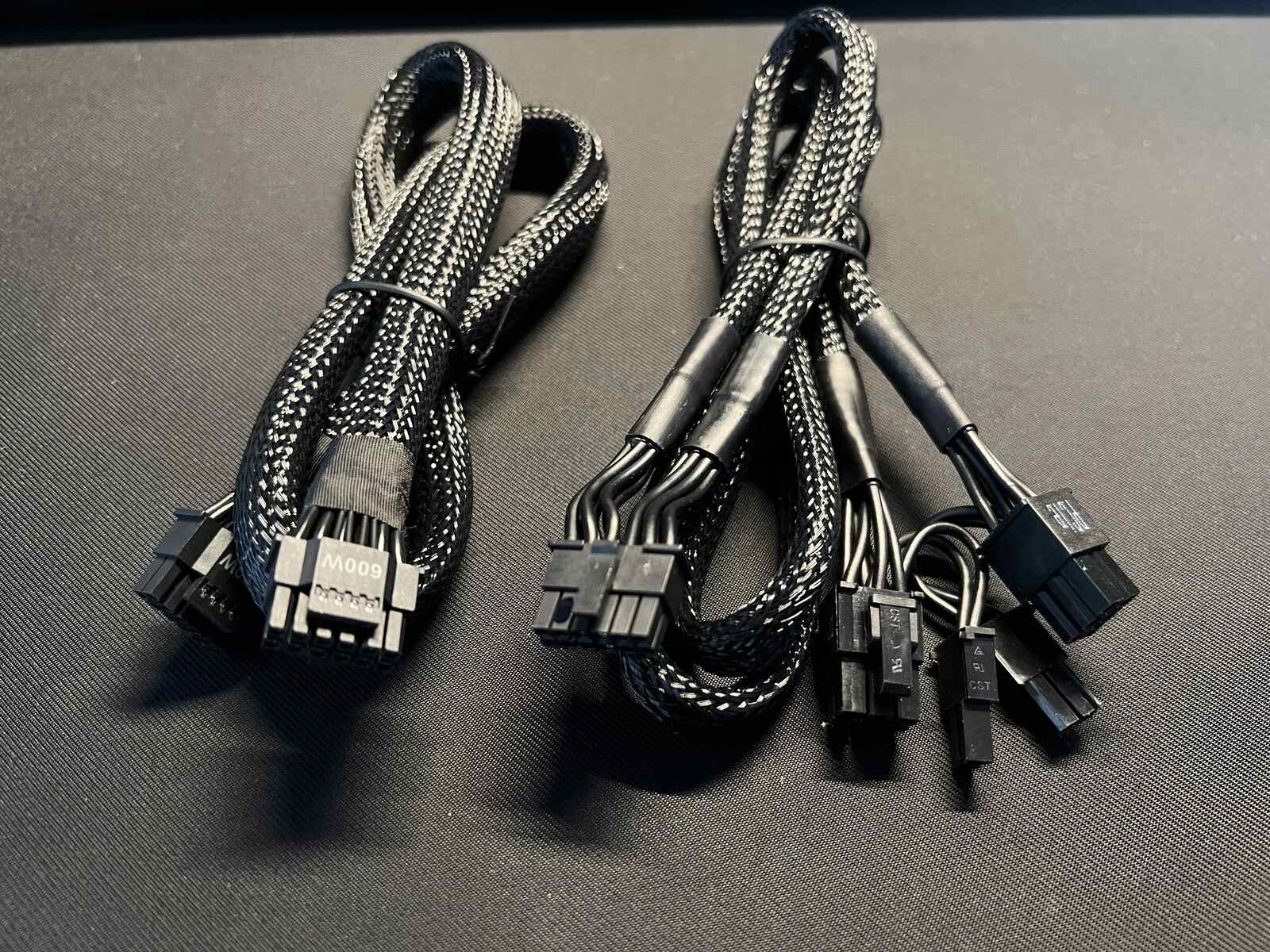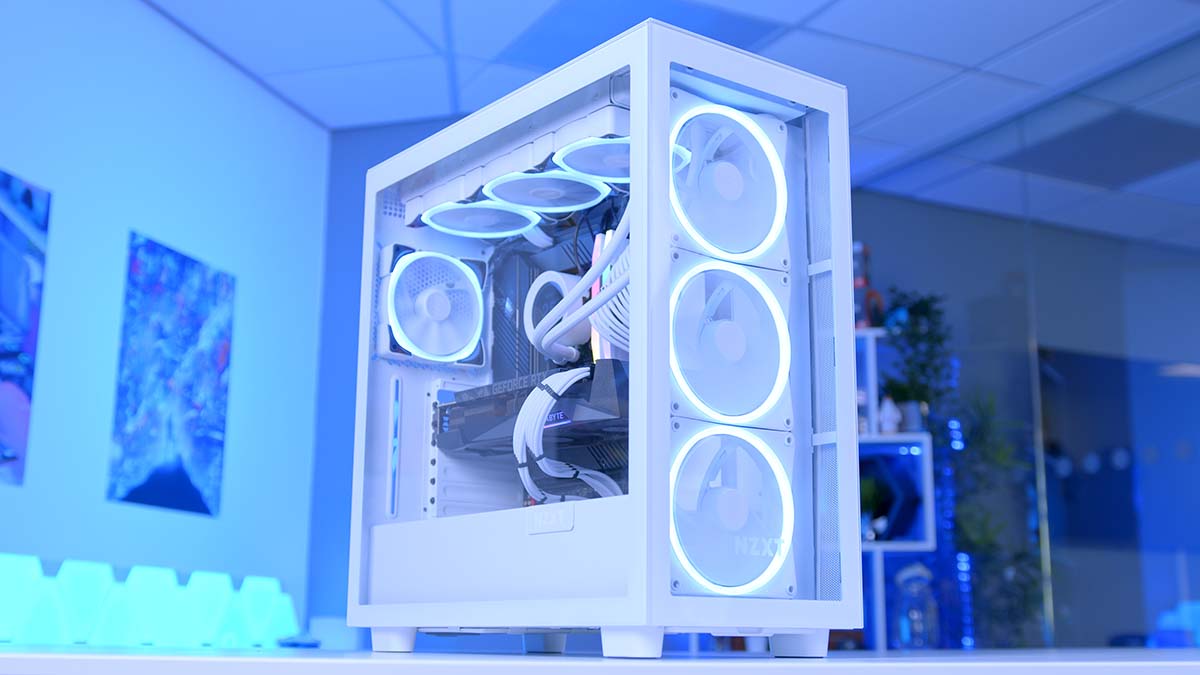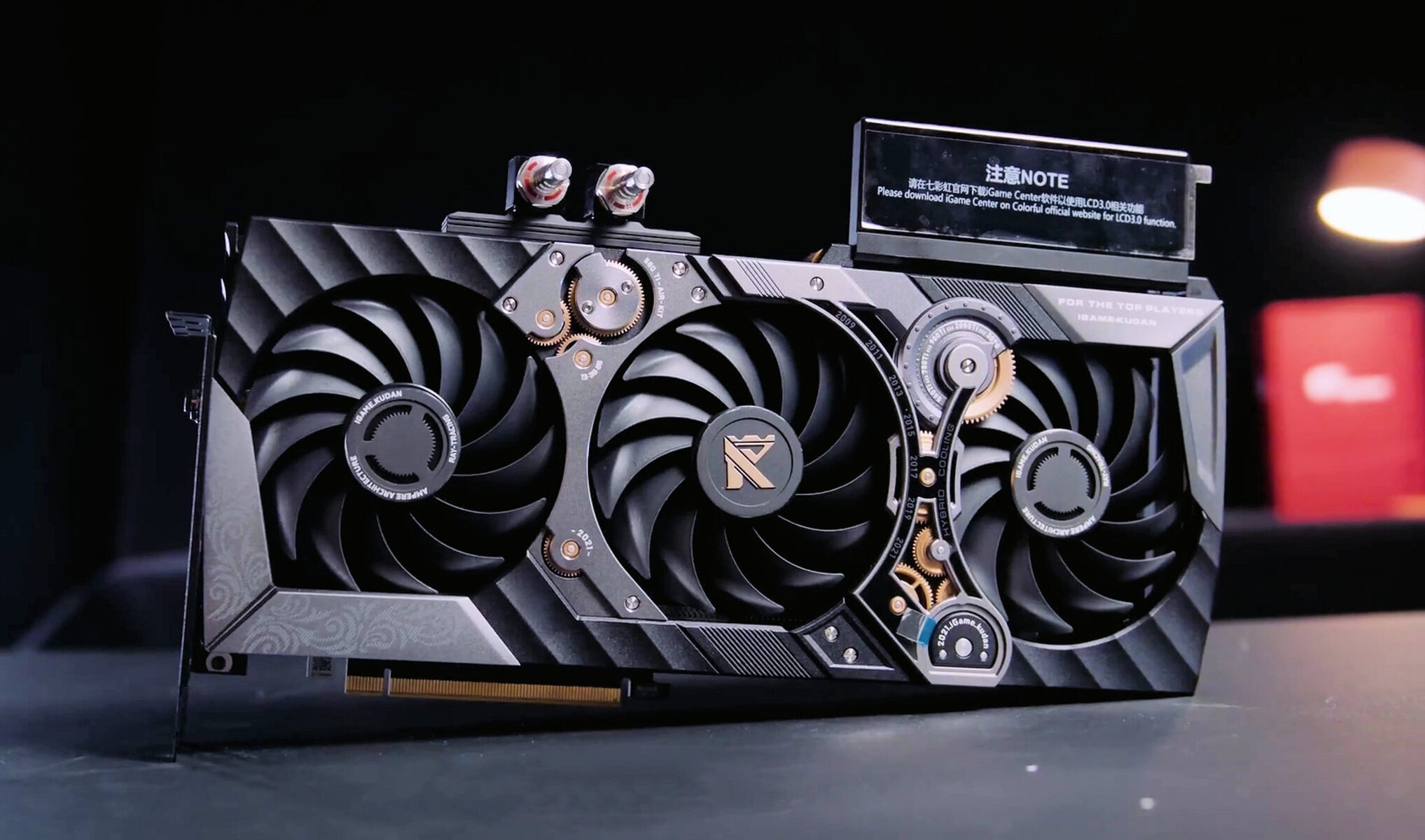Introduction
Welcome to our guide on choosing the right power supply unit (PSU) for the R9 390 graphics card. If you’re a gaming enthusiast or a content creator, you understand the importance of having a reliable and efficient PSU to power your system. The R9 390 is a powerful graphics card that requires a PSU capable of delivering sufficient power to ensure optimal performance.
When it comes to building or upgrading your gaming rig, the PSU is often overlooked or undervalued. However, selecting the right PSU is crucial for the stability, longevity, and overall performance of your system. A PSU that is inadequately powered can result in system crashes, underperformance, and even damage to your hardware.
In this guide, we will walk you through the factors to consider when choosing a PSU for your R9 390. We’ll look at the minimum power requirements for the card, recommended wattage, PSU efficiency, and certification. We’ll also discuss the benefits of modular and non-modular PSUs, and highlight some reliable PSU brands. By the end of this guide, you’ll have a clear understanding of what PSU you need to ensure your R9 390 runs smoothly and efficiently.
So, whether you’re a seasoned PC builder or just starting out, let’s dive into the world of PSUs and find the perfect match for your R9 390.
Power Supply Unit (PSU) Basics
Before we delve into the specifics of choosing a PSU for your R9 390, let’s start with the basics. The power supply unit is a vital component of your computer that converts AC power from your electrical outlet into the DC power required by your PC’s internal components.
PSUs come in various wattages, form factors, and efficiency ratings. The wattage determines the amount of power the PSU can deliver, while the form factor refers to its physical size and compatibility with your computer case. The efficiency rating indicates how effectively the PSU converts AC power to DC power, with higher ratings being more efficient.
It’s important to note that the power requirements of your system depend on various factors, including the components you have installed, such as the CPU, GPU, RAM, storage devices, and peripherals. A powerful graphics card like the R9 390 will require a higher wattage PSU compared to a system with less demanding components.
When selecting a PSU, it’s crucial to consider not only the wattage but also other factors such as the number of connectors, voltage stability, ripple suppression, and safety features. These factors contribute to the overall performance and reliability of your PSU.
In terms of connectors, ensure that the PSU has enough 8-pin and 6-pin PCIe connectors to accommodate the power needs of your R9 390. Additionally, consider other connectors such as SATA power connectors for your storage devices, 24-pin ATX connectors for your motherboard, and peripheral connectors for your other components.
Voltage stability and ripple suppression are important for maintaining a stable and clean power supply, which helps prevent system crashes and damage to your hardware. Look for PSUs that provide consistent voltage output and have low ripple and noise levels.
Lastly, prioritize safety features such as overcurrent protection (OCP), overvoltage protection (OVP), undervoltage protection (UVP), and short circuit protection (SCP). These features help safeguard your components from power surges, spikes, and other electrical issues.
Now that we have covered the basics of PSUs, let’s move on to why choosing the right PSU for your R9 390 is crucial for optimal performance.
Importance of Choosing the Right PSU for R9 390
Choosing the right power supply unit (PSU) for your R9 390 graphics card is of paramount importance for ensuring optimal performance and longevity of your system. The R9 390 is a powerful GPU that demands a reliable and sufficient power supply to deliver its full potential. Here are some key reasons why selecting the right PSU is crucial:
1. Stability and Performance: The R9 390 is a power-hungry GPU that requires a consistent and stable power supply to perform at its best. Insufficient power delivery or fluctuations can result in system crashes, performance drops, and even damage to your components. By choosing a PSU with sufficient wattage and stable voltage output, you can ensure your R9 390 runs smoothly and delivers consistent performance.
2. Overclocking Capability: If you’re an enthusiast looking to push your R9 390 to its limits through overclocking, a high-quality PSU is a must. Overclocking increases the power requirements of the GPU, and a subpar PSU may not be able to supply the necessary power, resulting in instability and potential damage. A well-chosen PSU with ample headroom will provide the stable power needed for successful and safe overclocking.
3. System Longevity: A high-quality PSU not only ensures stability and performance but also protects your components from power-related issues. By delivering clean and regulated power, a reliable PSU helps prevent electrical surges and spikes that can damage sensitive components like the GPU, CPU, and motherboard. Investing in a quality PSU can extend the lifespan of your entire system.
4. Energy Efficiency: The efficiency of a PSU directly affects your energy consumption and electricity bills. Lower-quality PSUs tend to have lower efficiency ratings, resulting in more wasted energy and increased costs. By selecting an efficient PSU with a higher 80 Plus certification, such as Gold or Platinum, you can minimize energy wastage and reduce your environmental footprint.
5. Upgradability: It’s essential to choose a PSU that can accommodate future upgrades. As new and more powerful components are released, their power requirements increase. By selecting a PSU with a higher wattage than what is currently required for your R9 390, you allow room for future upgrades without having to purchase another PSU. This future-proofing can save you money and hassle down the line.
By understanding the importance of choosing the right PSU for your R9 390, you can ensure that your system operates smoothly, performs at its best, and remains protected from power-related issues. Next, we’ll explore the factors to consider when selecting a PSU for your R9 390.
Factors to Consider When Choosing a PSU for R9 390
When selecting a power supply unit (PSU) for your R9 390 graphics card, there are several important factors to consider. These factors will help ensure that you choose a PSU that meets the power requirements and provides optimal performance for your system. Here are the key factors to keep in mind:
1. Wattage: The wattage rating of a PSU is the maximum amount of power it can deliver. The R9 390 is a high-performance GPU that requires a PSU with adequate wattage to handle its power demands. It is essential to choose a PSU that meets or exceeds the minimum wattage requirement for the R9 390, which is typically around 600 watts. However, for better stability and to account for other system components, it is recommended to opt for a PSU with a higher wattage, ideally around 750 watts or more.
2. Compatibility: Ensure that the PSU is compatible with your computer’s form factor. Common form factors include ATX, Micro ATX, and Mini ITX. ATX is the most widely used form factor and is compatible with the majority of computer cases. Additionally, check that the PSU has the necessary connectors to power your R9 390 and other components, such as PCIe connectors for the GPU and SATA connectors for storage devices.
3. Efficiency and Certification: PSU efficiency refers to how effectively it converts AC power to DC power. Look for PSUs with higher efficiency ratings, such as 80 Plus Gold or Platinum. These PSUs are more energy-efficient, resulting in lower electricity consumption and reduced heat generation. They also tend to have higher-quality components, better voltage regulation, and improved overall longevity.
4. Modular vs Non-Modular: Consider whether you want a modular or non-modular PSU. Modular PSUs allow you to connect only the necessary cables, reducing cable clutter and improving airflow within your system. On the other hand, non-modular PSUs have fixed cables, which may result in extra cables that you don’t need. Depending on your preference and cable management needs, choose the appropriate PSU type.
5. Brand and Reliability: It’s essential to choose a reputable PSU brand known for its reliability and quality. Trusted brands often provide better customer support, longer warranties, and high-quality components. Look for reviews and user feedback to gauge the reliability of a particular PSU model and brand.
6. Budget: Consider your budget when selecting a PSU. While it’s important not to compromise on quality and reliability, there are PSU options available at various price points. Determine your budget and find a PSU that offers the necessary features and wattage without exceeding your financial constraints.
7. Future Upgrades: Finally, consider your future upgrade plans. If you anticipate adding more power-hungry components to your system or plan to overclock your R9 390, it’s advisable to choose a PSU with higher wattage and headroom to accommodate these upgrades without needing to replace the PSU again.
By carefully considering these factors, you can select a PSU that meets the power requirements of your R9 390, ensures system stability, and provides a solid foundation for your gaming or content creation rig. Next, we’ll explore the minimum power requirements and recommended wattage for the R9 390.
Minimum Power Requirements for R9 390
Understanding the minimum power requirements for your R9 390 graphics card is crucial when choosing the right power supply unit (PSU) for your system. The minimum power requirements determine the minimum wattage PSU you need to ensure your R9 390 runs smoothly and without any power-related issues.
The R9 390 has a minimum power requirement of around 600 watts. This means that your PSU should have a wattage rating of at least 600 watts to meet the power demands of the GPU. However, it’s important to note that this requirement may vary depending on the specific model and the rest of your system configuration.
It’s worth mentioning that the minimum power requirement accounts for the GPU’s power consumption under normal operating conditions, but it doesn’t take into consideration other factors such as overclocking, additional components, or system load. If you plan on overclocking your R9 390 or have other power-hungry components in your system, it’s recommended to opt for a PSU with a higher wattage rating to ensure stability and ample power supply.
Furthermore, it’s important to consider the power supply unit’s efficiency when determining the minimum power requirements for your system. PSU efficiency affects the power draw from your electrical outlet and the amount of power wasted as heat. If you have a highly efficient PSU, you can reduce the overall power consumption and lower your electricity bills.
When calculating the minimum power requirements for your R9 390, take into account other components in your system, such as the CPU, RAM, storage devices, and peripherals. These components also consume power and contribute to the overall power requirements.
Remember, the minimum power requirement for the R9 390 is a baseline measure, and it’s always recommended to have some headroom when selecting a PSU. Having a power supply with higher wattage allows for better power stability, decreased stress on the PSU, and potential future upgrades without the need for replacing the PSU.
Now that you understand the minimum power requirements for your R9 390, let’s explore the recommended wattage for this powerful graphics card.
Recommended PSU Wattage for R9 390
When selecting a power supply unit (PSU) for your R9 390 graphics card, it’s important to consider the recommended wattage. While the minimum power requirements provide a baseline, the recommended wattage takes into account various factors to ensure optimal performance and stability for your system.
The recommended PSU wattage for the R9 390 is typically around 750 watts or higher. This wattage recommendation takes into account the power requirements of the GPU itself, as well as other components in your system such as the CPU, RAM, storage devices, and peripherals.
Having a higher wattage PSU than the minimum requirement allows for better power stability and headroom. It ensures that your system has ample power supply even during peak usage or when overclocking your R9 390. Additionally, it provides flexibility for future upgrades, allowing you to add more power-hungry components to your system without the need to upgrade the PSU again.
Choosing a PSU with a higher wattage rating also ensures efficiency and longevity. Running a PSU near its maximum capacity for extended periods may lead to higher operating temperatures and decreased overall efficiency. By having a higher wattage PSU, you can keep the load on the PSU at a reasonable level, improving its efficiency and potentially extending its lifespan.
However, it’s important to keep in mind that the recommended wattage can vary depending on your specific system configuration and usage. If you have additional power-hungry components or plan to heavily overclock your R9 390, you may consider going for even higher wattage options, such as 850 watts or more.
It’s worth noting that while having a higher wattage PSU is beneficial, it’s equally important to select a PSU from a reputable brand with high-quality components and proper electrical protections. PSU efficiency is another crucial factor to consider, as it can affect power consumption and heat generation. Opting for PSUs with higher 80 Plus certifications, such as Gold or Platinum, ensures greater efficiency and can save you money on energy bills over time.
In summary, the recommended PSU wattage for the R9 390 is around 750 watts or higher, considering the power requirements of the GPU and other components in your system. Selecting a higher wattage PSU ensures stability, allows for overclocking and future upgrades, and improves efficiency and longevity. Now that you know the recommended wattage, we’ll explore the importance of PSU efficiency and certification.
PSU Efficiency and Certification
When choosing a power supply unit (PSU) for your R9 390 graphics card, considering the efficiency and certification of the PSU is crucial. PSU efficiency refers to how effectively it converts AC power from your electrical outlet into the DC power required by your system, while certification indicates the level of efficiency achieved by the PSU. Let’s explore the importance of PSU efficiency and certification:
PSU Efficiency: PSU efficiency is expressed as a percentage and represents the amount of power drawn from the electrical outlet that gets converted into usable DC power. Higher PSU efficiency means less power wasted as heat, resulting in lower energy consumption and reduced electricity bills. A more efficient PSU not only reduces environmental impact but also contributes to the longevity and reliability of your system by running cooler and more efficiently. When selecting a PSU for your R9 390, look for PSUs with higher efficiency ratings to get the most out of your system and minimize energy wastage.
PSU Certification: PSU efficiency is validated through certifications provided by organizations such as 80 Plus. These certifications ensure that the PSU meets specific efficiency benchmarks. The higher the certification level, the greater the efficiency of the PSU. The 80 Plus certification levels, from lowest to highest, include Standard, Bronze, Silver, Gold, Platinum, and Titanium. When choosing a PSU for your R9 390, aim for a PSU with higher certification, such as Gold or Platinum, to ensure superior efficiency and quality. However, keep in mind that higher certification levels may come at a higher cost, so consider your budget and system requirements when selecting the appropriate certification level.
By selecting a PSU with higher efficiency and certification, you can benefit in several ways. Firstly, an efficient PSU reduces energy consumption, which translates into cost savings on your electric bills in the long run. Secondly, an efficient PSU generates less heat, leading to better thermal performance and less strain on your system’s cooling components. This contributes to overall system stability and longevity. Thirdly, certified PSUs undergo rigorous testing to ensure they meet industry standards, providing you with peace of mind regarding the reliability and quality of the PSU.
It’s important to note that efficiency and certification are not the only factors to consider when selecting a PSU. Other considerations, such as wattage, compatibility, and reliability, should also be taken into account. However, PSU efficiency and certification are crucial indicators of the PSU’s performance, energy efficiency, and overall quality.
Now that we’ve established the importance of PSU efficiency and certification, let’s explore the advantages and considerations of modular and non-modular PSUs for your R9 390.
Modular vs Non-Modular PSUs for R9 390
When selecting a power supply unit (PSU) for your R9 390 graphics card, one important consideration is whether to choose a modular or non-modular PSU. Both types have their advantages and considerations, so let’s explore the differences between modular and non-modular PSUs:
Modular PSUs: Modular PSUs feature detachable cables, allowing you to connect only the cables that are necessary for your specific system configuration. This means you can eliminate unnecessary cables, reducing cable clutter and improving airflow within your system. Modular PSUs enable neater cable management, making it easier to route cables and maintain a cleaner and more organized system. Additionally, should you need to replace a cable in the future, modular PSUs allow for easy cable swaps, minimizing downtime.
Non-Modular PSUs: Non-modular PSUs come with fixed cables that are permanently attached to the PSU. As a result, you’ll have all the cables connected, regardless of whether you need them or not. This can lead to increased cable clutter inside your system, potentially affecting airflow and making cable management more challenging. However, non-modular PSUs are often more affordable compared to their modular counterparts.
When deciding between modular and non-modular PSUs for your R9 390, here are some considerations:
Cable Management: If you prioritize a clean and organized system with improved airflow, a modular PSU is the way to go. The ability to connect only the cables you need reduces clutter and allows for better cable routing. This can contribute to better cooling performance and easier maintenance in the long run. On the other hand, if cable management is not a significant concern for you, a non-modular PSU might be a more budget-friendly option.
Future Upgrades: If you plan on upgrading your system or adding more power-hungry components in the future, a modular PSU provides the flexibility to connect the necessary cables for the new components without having to replace the entire PSU. This future-proofing can save you both time and money. Non-modular PSUs may require cable management adjustments or potentially even an upgrade if you add new components that require additional cables.
Budget: Non-modular PSUs tend to be more affordable compared to modular PSUs. If budget is a significant consideration for you, a non-modular PSU might be the more cost-effective option. However, keep in mind that modular PSUs offer the convenience of cable management and flexibility for future upgrades.
In summary, modular PSUs offer improved cable management, better airflow, and easier maintenance, but at a higher cost. Non-modular PSUs are more budget-friendly but may result in increased cable clutter. Consider your priorities, budget, and system requirements when choosing between modular and non-modular PSUs for your R9 390.
Next, let’s delve into the importance of choosing reputable PSU brands and understanding their reliability.
PSU Brands and Reliability for R9 390
When it comes to selecting a power supply unit (PSU) for your R9 390 graphics card, choosing a reputable PSU brand is essential. Reliable PSU brands not only provide high-quality components but also offer better customer support, longer warranties, and a track record of consistent performance. Here are some factors to consider when evaluating PSU brands and their reliability for your R9 390:
Reputation: Start by researching PSU brands and their reputation in the industry. Look for brands that have been well-established and recognized for their reliability and quality. Read reviews, check customer feedback, and consult reputable sources to gauge the overall reputation of a particular brand.
Certifications: PSU brands that invest in certifications and adhere to industry standards demonstrate their commitment to quality and reliability. Look for brands that have their PSUs certified by organizations such as 80 Plus. Certifications ensure that the PSUs meet certain benchmarks and undergo thorough testing for efficiency, reliability, and overall performance.
Customer Support and Warranties: Consider the level of customer support and the warranty provided by the PSU brand. Brands that offer excellent customer support and longer warranties demonstrate their confidence in the durability and reliability of their products. A reliable brand will stand behind their PSUs and assist you promptly in case of any issues or concerns.
Reviews and Recommendations: Pay attention to reviews and recommendations from trusted sources, professionals, and experienced computer enthusiasts. These reviews can provide valuable insights into the performance and reliability of a specific PSU brand and its products. Keep in mind that personal experiences may vary, so consider a consensus opinion from multiple sources.
Brand History and Experience: Brands with a long history in the PSU market often have refined manufacturing processes, expertise, and a proven track record. While newer brands can also produce quality PSUs, opting for brands with a history of reliable performance can provide an added sense of trust and confidence in your PSU choice.
By considering these factors, you can select a PSU brand known for its reliability and trustworthiness, ensuring a stable and efficient power supply for your R9 390. Some reputable PSU brands in the market include Corsair, EVGA, Seasonic, Cooler Master, and Thermaltake, among others. Remember to match the PSU brand and model with the power requirements of your R9 390 and your specific system configuration for optimal compatibility and performance.
Now that we’ve explored PSU brands and their reliability, let’s wrap up this guide with a recap of the key points we’ve discussed and the importance of choosing the right PSU for your R9 390.
Conclusion
Choosing the right power supply unit (PSU) is crucial for optimal performance, stability, and longevity when powering your R9 390 graphics card. Throughout this guide, we have discussed various factors to consider when selecting a PSU for your R9 390, including power requirements, efficiency, modular vs. non-modular options, reputable brands, and reliability.
Understanding the minimum power requirements and recommended wattage for your R9 390 is essential to ensure sufficient power delivery. Aim for a PSU with at least 600 watts as a baseline, but considering a higher wattage, such as 750 watts or more, provides better stability and accommodates future upgrades.
The efficiency and certification of a PSU play a significant role in power consumption, heat generation, and overall system performance. Look for PSUs with higher efficiency ratings and certifications, such as 80 Plus Gold or Platinum, for optimal energy efficiency and reliable power supply.
Deciding between modular and non-modular PSUs depends on your preferences for cable management and budget considerations. Modular PSUs offer better cable management and easier maintenance, while non-modular PSUs may be more cost-effective options.
When choosing a PSU brand, prioritize reputable brands with a history of reliability, good customer support, and warranties. Brands like Corsair, EVGA, Seasonic, Cooler Master, and Thermaltake are known for their quality PSU offerings.
By considering these factors and making an informed decision, you can select the right PSU for your R9 390 that meets power requirements, ensures stability, and maximizes the performance of your gaming or content creation rig.
Remember, a dependable PSU is the backbone of your system, providing clean and stable power to all the components. It not only enhances the performance and longevity of your hardware but also contributes to energy efficiency and overall system reliability.
Now that you have the information you need, go ahead and choose the perfect PSU for your R9 390, ensuring a robust and efficient power supply for your gaming or productivity needs.









